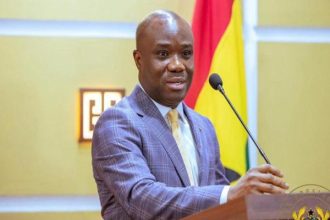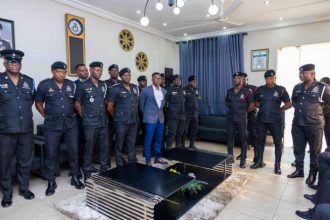Churches can now operate after three months of closure, but a catholic and law lecturer says he has developed cold feet.
“No, I am not attending mass tomorrow”, he said on JoyNews’ Newsfile Saturday, monitored by theghanareport.com.
Not that he has lost his faith in God in a time of coronavirus pandemic.
But he does not have faith in churches to properly enforce a dozen safety protocols issued by the government to check the spread of coronavirus.
“Let’s be honest. I am not sure the churches have not been preparing for this”, he said.
From taking contacts of all attendees, fumigating premises and installing sanitisers, religious organisations are waking up to more than 10 commandments in the bid to ensure services do not become a hotspot.
And they cannot meet for more than one hour and they cannot be more than 100 congregants.
Islamic leaders also point out their faith is tied to praying at clearly defined times. The protocols would disrupt the proper worship of Allah and so, the faithful should do it at home, their leaders have said.
New covid-19 protocols won’t favour Muslims – Sheik Aremeyaw
And so several churches have been lining up to say churches would remain closed as services move online.
Is the president’s easing of restrictions a good idea? Abotsi says, yes.
After several months of restrictions, it was “important” that government “restores” some normality and human rights.
And so what the president did was to simply throw the ball in the court of religious leaders, he explained.
“Leave the churches [and mosques] to exercise those rights under restrictions”, he said.
And that choice exercised by religious leaders to largely stay closed is also available to every individual of any faith.
In the case of the catholic church, where Kofi Abotsi is a member, diocese have been given some freedom to choose to remain close or try to open.
But opening churches, Kofi Abotsi said presented some difficulties.
First, he pointed out, churches are not used to turning away congregants. This means, if a service reached the 100-attendee mark, it would be hard for church leaders to turn away a member seeking to join the service.
Abotsi, who is Dean of UPSA Faculty of Law, also expressed worry about how government would enforce compliance to the protocols. Would people be arrested during services for failing to comply?, he wondered.
And how are authorities going to police compliance with religious organisations dotted in every nook and cranny, especially churches, he expressed misgivings.
He said while he is not sure how authorities intend to police adherence to the safety protocols, he is also not “sufficiently” assured churches can adhere to them.
As churches appear uncomfortable at the protocols, Kofi Abotsi says he is also uncomfortable at the thought of going back to church.
















